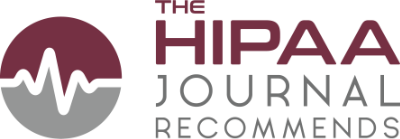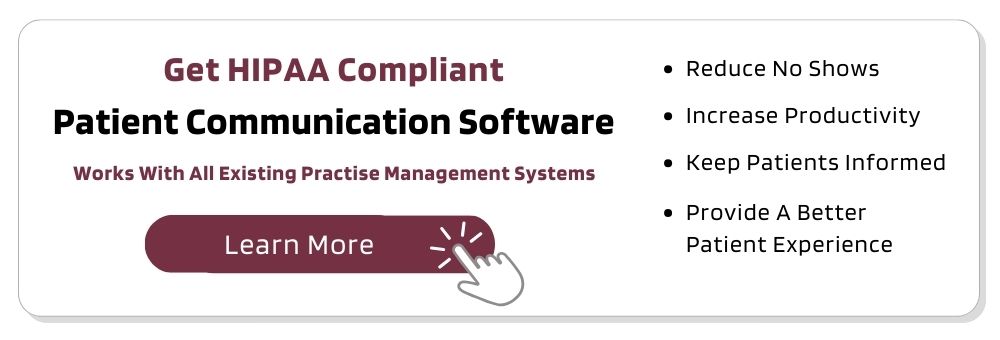Nurse Patient Communication
Nurse patient communication is not only important for the identification of symptoms and feedback on treatments, but it can also help improve the patient experience, increase the prospects of recovery, and reduce readmissions – saving healthcare facilities money through CMS’ Hospitals Readmission Reduction program.
Effective communication between nurses and patients is a fundamental part of good nursing care. Good nurse patient communication makes patients feel valued, cared for, and safe. When patients are admitted into hospital it is common for them to feel like they have lost control of their lives. Everyday things they used to take care of themselves are placed in the hands of others. Being totally reliant on hospital staff can leave patients feeling helpless.
When nurses spend time talking with patients and practice patient-centered communication, patients feel valued as a person and they will be more likely to speak openly about how they are feeling. This will put nurses in a better position to formulate a comprehensive, individualized care plan for the patient. Good nurse patient communication improves the quality of care and as well as the chances of patients making a successful recovery and avoid readmission.
Nurse Patient Communication and Patient Satisfaction
A study by C. McCabe in 2004, Nurse-patient communication: an exploration of patients’ experiences, explored the key elements of nurse patient communication from the perspective of the patient and found that the most important factors to patients were the friendliness of nurses, readiness of nurses to listen, and nurses spending time at patients’ bedsides.

HIPAA Compliant
Patient Communication
Software
Keep Patients Informed,
Reduce No Shows & Increase
Staff Productivity
Rectangle Health’s Patient Engagement Software Is Used By 1,000s Of Healthcare Providers & Easily Integrates With All Existing Practise Management Systems
Your Privacy Respected
HIPAA Journal Privacy Policy
These factors are just as important to patients today. If nurses perform poorly in any of those areas, patient satisfaction will drop. Patient satisfaction has a positive effect on patient outcomes and there are financial benefits when patients are happy with the service that have received.
Patient satisfaction scores are used as a measure of the level of success of a hospital. A percentage of Medicare reimbursement is withheld if patient satisfaction scores fall below a certain level and, for some healthcare workers, a percentage of their pay is linked to patient satisfaction.
When patients are discharged, they will share their experiences with their friends and family members. The experiences with a healthcare provider can now be instantly shared with huge numbers of people through social media networks and reviews platforms such as Yelp and Google. Not only will low patient satisfaction scores make it harder to retain patients, it can also make it harder to attract other patients.
Principles in Effective Nurse Patient Communication
There must be good nurse patient communication throughout every step of a patient’s journey, from intake to discharge and beyond. The most valuable commodity is time. It is important to spend time at patients’ bedsides engaging them in conversation to find out how they are feeling, if they have any concerns, and to discover more about their daily lives and plans for the future. This may require a small change to nurse workflow to fit in extra time with patients.
Finding the time to spend with patients can be a challenge but the benefits are clear. A study published in the Patient Experience Journal in 2017 showed nurses that spend time sitting with patients and engaging them in conversation resulted in an increase in patient satisfaction from the 43rd percentile to the 9th percentile.
Good nurse patient communication requires active listening. Nurses must learn to observe a patient’s body language, facial expressions, and behavior rather than just listening to what is being said. Nurses should be sincere, honest, and frank with patients and take an interest in understanding how patients are feeling. They must also make sure they communicate effectively and ensure that any information passed on to patients has been understood.
There are several communications tools in nursing that can help nurses develop the skills they need to become more effective communicators. Take advantage of these tools and you will be able to improve communication with patients. Better communication has been shown to result in greater job satisfaction for nurses.
Tools to Improve Nurse Patient Communication
Just spending a little time sitting with patients can make a huge difference to patient satisfaction scores, but it is not always easy with busy workflows. One way that hospitals are helping to ease the burden on nurses is to provide them with better communication tools. A great deal of time is wasted in hospitals using outdated communication technologies such as pagers, landlines, and faxes to send and receive information. A study conducted by the Ponemon Institute revealed healthcare professionals typically lose around 45 minutes a day due to inefficient communications systems. That equates to around $1 million a year for an average hospital.
Hospitals that implement more modern communications tools can improve efficiency, productivity, and cut out hours of wasted time. These platforms help hospitals optimize workflows, improve communication efficiency between doctors and nurses, and speed up consultations and transfers. By improving communication efficiency, the burden on nurses is eased and they can spend more face-to-face time with patients.
HIPAA-compliant text messaging platforms allow nurses to communicate with all members of the care team effectively and efficiently and eliminate phone tag and chasing up unanswered pages. Some platforms can easily be used to communication with patients during and after a hospital visit. For instance, they can be used to replace call lights so patients can send messages to the nurse station with information about what they need. These applications can also be used to send patients information to better inform them about their medical condition and steps they need to take once they are discharged.
Nurses can use these platforms on tablets and smartphones at a patient’s bedside to get their lab test results, contact doctors, and get essential information in real time. Information from the app can also be integrated with EHRs saving nurses time on administration, which frees up more time to spend with patients. The communication platforms can also be used for group chats with a patient’s family, members of the care team, and to communicate with patients after they have been discharged.
Improvements in nurse patient communication and efficiency of information transfer mean patients receive faster, more thorough, and more complete care, patient safety is improved, and case studies of healthcare providers that have adopted these platforms show they can also improve clinical outcomes and patient satisfaction and reduce readmissions.





